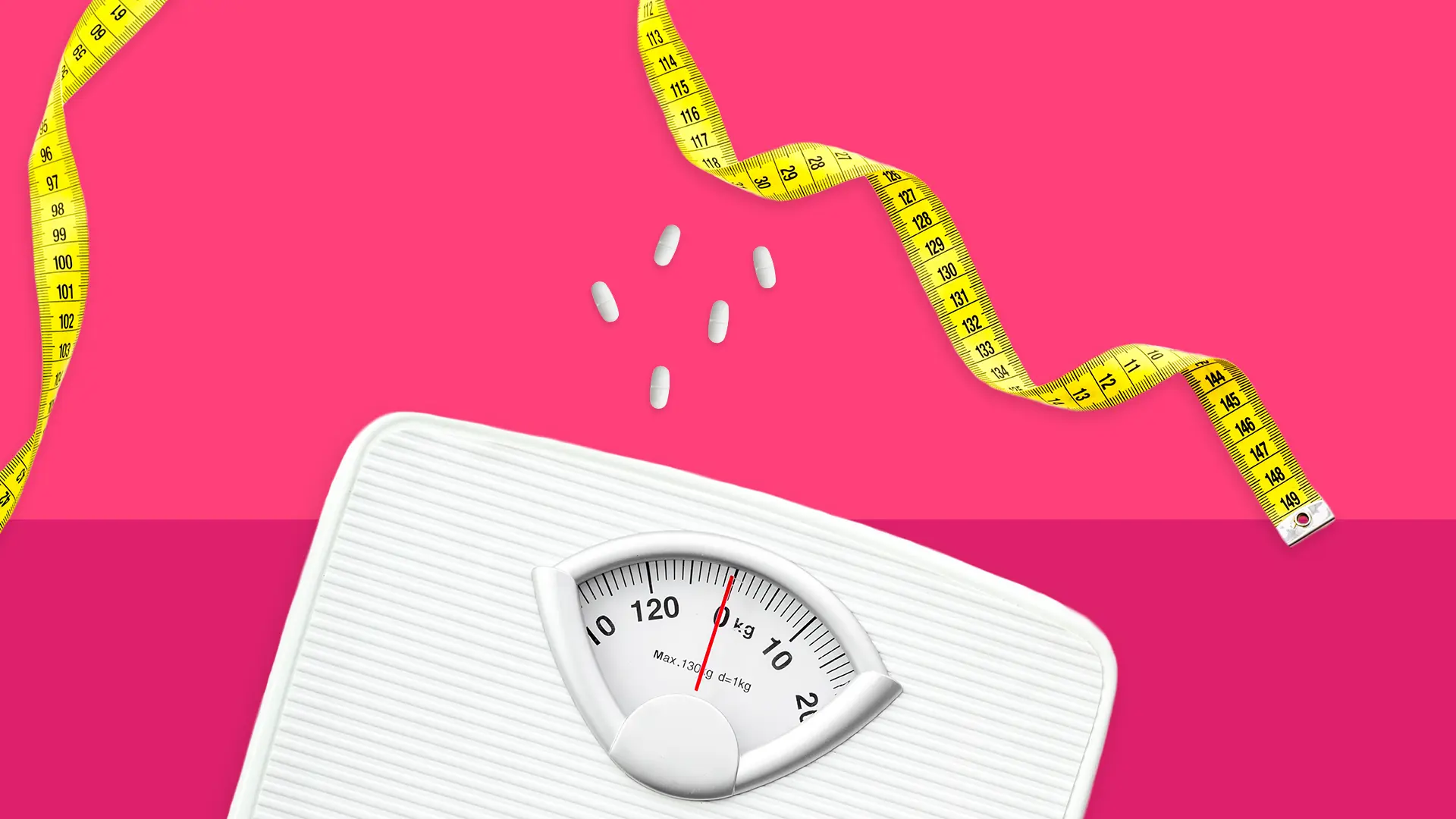
Cortisol and Weight Gain: How Stress Hormones Sabotage Your Fat Loss Goals

“I was exercising, eating healthy, and gaining weight. What was the culprit? Chronic stress.”
It’s a frustrating and all-too-common story. You’re counting every calorie, logging your workouts, doing everything “right” and yet the number on the scale refuses to budge, or worse, creeps up. It doesn’t seem fair. But there’s a hidden player in this scenario that often goes unchecked: chronic stress. And more specifically, its hormonal sidekick cortisol.
To a lot of individuals, stress is not only an emotional state; it’s a physiological disruptor. Cortisol, your body’s stress hormone number one, is essential for survival. But when it remains elevated for an extended period of time, it can devastate your metabolism, promote fat storage (particularly around the waistline), interfere with your hunger signals, and sabotage your body’s fat-burning ability.
In this article, we’ll decode the stress-weight connection and uncover how cortisol could be silently undermining your fitness goals. From disrupted sleep and blood sugar swings to inflammation and hormonal imbalances, we’ll explore how chronic stress traps your body in a loop where weight gain becomes easier—and weight loss becomes nearly impossible. More importantly, we’ll look at strategies to break free from the cycle and reclaim control over your body and mind.
What Is Cortisol and Why Is It Important?
The Stress Hormone Defined
Cortisol is a hormone released by your adrenal glands, two small but potent glands that sit atop your kidneys. Also referred to as the “stress hormone,” cortisol is an important participant in your body’s fight-or-flight reaction—the natural survival mechanism that allows you to respond quickly to threats, real or perceived.
When your brain perceives danger or severe pressure (whether or not there actually is an emergency, just a traffic jam or deadline crunch), it tells your adrenal glands to release cortisol into your system. This hormone’s purpose is to cause your body to move quickly and remain alert when faced with high-stress environments. Here’s what happens with cortisol in the moment:
-
Releases glucose into the blood: Cortisol causes your liver and muscles to break down stored glucose called glycogen, giving your body readily available energy to fight or flee. When glycogen stores are low, it can even tell your body to break down muscle tissue to make glucose out of amino acids via gluconeogenesis.
-
Increases reaction time and mental alertness: Cortisol improves your brain’s reaction time, awareness, and vigilance, making your perception sharper so you can react quickly to any obstacle you encounter.
-
Shuts off non-vital body functions: In order to save energy for short-term survival, cortisol temporarily shuts off processes that are not essential right away, including digestion, reproductive functions, and immune function.
In brief, intense bursts, cortisol is amazingly useful and even lifesaving. But when stress turns chronic—when that fight-or-flight toggle remains flipped—cortisol ceases to be beneficial and begins to be damaging. That’s when it can begin to disrupt your metabolism, boost fat storage (particularly around the midsection), and prime the way for long-term health effects.
Problem: When stress turns chronic, cortisol stays elevated, causing havoc with:
- Metabolism
- Blood sugar
- Fat storage
- Hunger signals
How Cortisol Directly Contributes to Weight Gain
1. It Increases Belly Fat Storage
High cortisol levels encourage the storage of visceral fat—the dangerous kind that surrounds your organs and increases your risk of:
Type 2 diabetes
Cardiovascular disease
Insulin resistance
Studies show chronic stress preferentially deposits fat around the abdomen, even in lean individuals.
2. It Cranks Up Your Appetite
Cortisol stimulates the release of ghrelin, which is your hunger hormone, while suppressing leptin, your satiety hormone. It makes you eat more on:
Carb-heavy, fat-heavy comfort foods
Eats more frequently
Eats between late evening hours
3. It Blocks Fat Burning
Cortisol:
Deactivates thyroid hormone (T3/T4) conversion
Reduces muscle mass; a muscle burns fat at rest
Encourages insulin resistance, making it harder to burn fat for fuel
Signs You Might Be Stuck in a Cortisol Loop
- Belly fat that lingered even after exercise.
- Mid-day energy slumps
- Constant waking between 3–4 AM
- Increased cravings for sugar or salt
- Anxiety or irritability
- Slower weight loss on a diet
Actual Review — “No Diet Worked Until I Got My Stress Under Control”
“I tried keto, cardio, fasting—you name it. But nothing changed until I began managing my stress. Once I began sleeping better and meditating, the scale finally shifted.”
— Nina S., 35, lost 17 lbs in 2 months
How to Reduce Cortisol Naturally and Regain Fat Loss
1. Better Sleep
Sleep 7–9 hours/night
Sleep in total darkness (melatonin reduces cortisol)
Remove screens 1 hour before bedtime
2. Incorporate Daily Stress-Reducers
Meditation or breathwork (just 10 minutes/day lowers cortisol)
Walking outdoors
Journaling or gratitude exercises
Reducing caffeine
3. Exercise Smarter
Excessive amounts of intense cardio will raise cortisol even higher. Try:
Resistance training 3 times per week
Walking, swimming, or pilates
Restorative yoga
4. Eat to Support Adrenal Health
Magnesium: spinach, pumpkin seeds
Omega-3s: salmon, walnuts
Vitamin C: bell peppers, oranges
Balanced meals with protein, fiber, and healthy fat
How long do you need to wait until you see some tangible results from cortisol balance?
You will note that:
Hunger normalizes in 1 – 2 weeks
Fat loss resumes in 3 – 6 weeks
Belly fat reduction is observable after 6 – 12 weeks through persistent lifestyle changes
Important point: managing cortisol isn’t a “quick fix; it’s rather a metabolic reset for your long-term health.
FAQ – Cortisol & Weight Gain
Q1: Can stress cause me to gain weight by itself?
Yes. Continuous stress can trigger hunger and fat storage even when calorie intake is normal.
Q2: What is cortisol belly like?
It tends to look like central abdominal fat—a soft, resistant pouch around the middle that’s hard to lose.
Q3: How do I check cortisol levels?
You can measure cortisol with a blood, saliva, or urine test. Inquire with your physician about morning cortisol and cortisol awakening response (CAR).
Q4: Can adaptogens assist?
Yes. Certain herbs such as ashwagandha, rhodiola, and holy basil have been found to decrease cortisol in certain people.
Q5: Is weight gain due to cortisol reversible?
Yes. With proper stress management, sleep habits, and supportive nutrition, you can drop stress-related fat in the long run.
Last Thoughts — You Can’t Burn Fat If You’re Burning Out
Cortisol isn’t your foe. It’s critical in crisis. But when you’re stressed all the time, your body values staying alive above losing fat.
If you’ve been in a rut for a while, even though “you’re doing everything right,” it’s time to look behind the scenes—at your stress response, sleep, and mindset.
The solution may not be another diet. It may simply be taking a deep breath.
“I thought I had a weight problem. Turns out, I had a stress problem. Once I treated that, the weight took care of itself.”
— Daniel R., down 22 lbs in 10 weeks after cortisol reset
You may also like
Adding {{itemName}} to cart
Added {{itemName}} to cart



